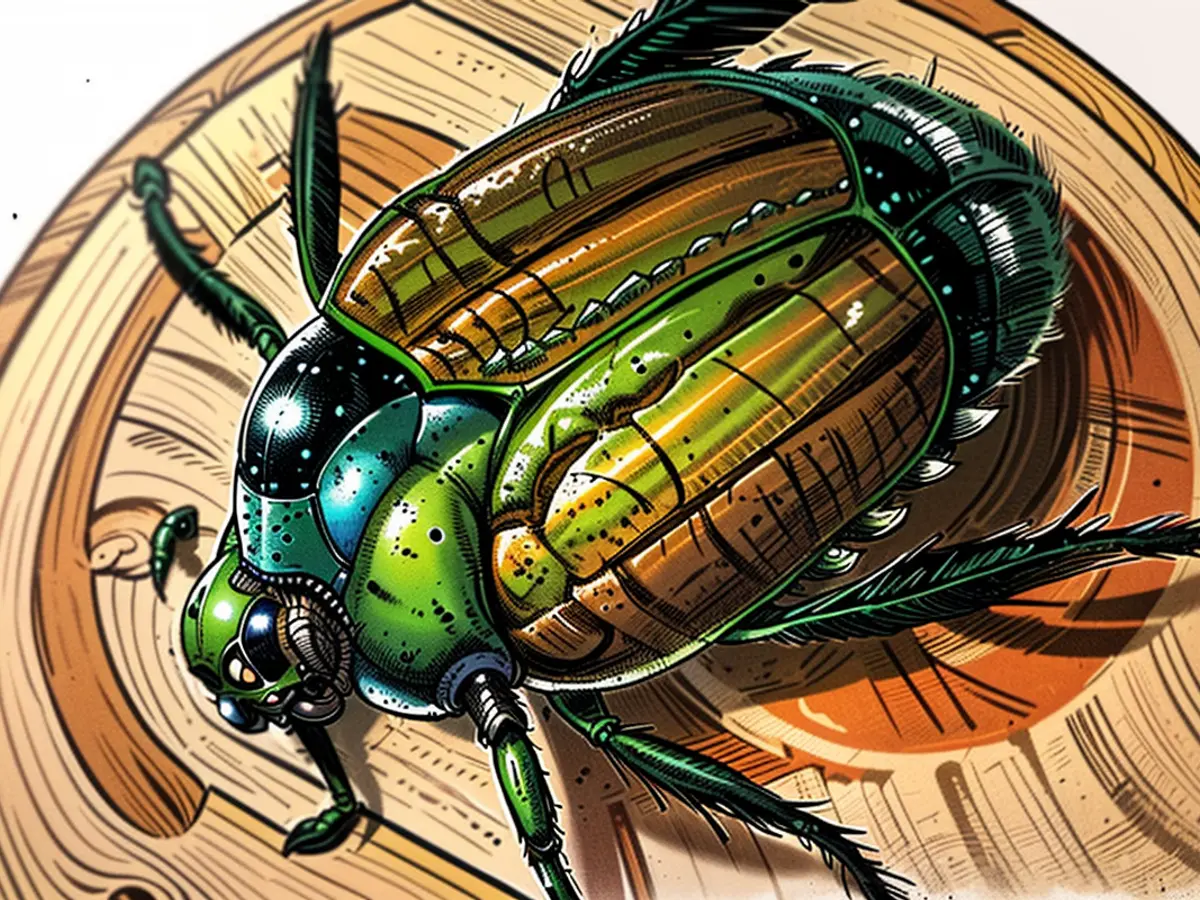Federal Government Prepares for Bible Plague
It's stripping fields bare and leaving trees bald: In Switzerland near the German border, the Japanese beetle is spreading. There's great concern that it could also settle in Germany. For fruit plantations and vineyards, this would be a disaster. The federal government is now taking action against this.
So far, the pest has not been sighted in Germany, but it is already causing great concern: To protect against the Japanese beetle, the Federal Ministry of Food and Agriculture (BMEL) is stepping up its precautions. "Early detection is key to combating plant pests like the Japanese beetle," explains Ophelia Nick, Parliamentary State Secretary in the BMEL. The goal is to prevent an outbreak through preventive measures. "We still have a chance," she emphasizes.
The feeding pest appeared in the Swiss border town of Basel in early July, threatening particularly Baden-Württemberg and southern Germany. It poses a particular threat to agriculture and forestry, as it infests leaves, flowers, or fruits of more than 300 plant species. The Asian-origin beetle falls like a biblical plague on orchards, vineyards, forests, green spaces, and gardens, leaving everything bare.
Prevention instead of combat
For monitoring and combating the beetles on site, the federal states are responsible. In Baden-Württemberg, for example, due to the higher risk, green material and soil from the infested area and buffer zone can only be transported further under strict conditions. Regular surveys are also carried out in all federal states using special pheromone traps.
Once the insect has settled, removal becomes difficult. Experiences from countries like Italy show that the Japanese beetle can naturally spread up to ten kilometers per year within the first years. "That's what we need to prevent," emphasizes Bernhard Schäfer from the Julius Kühn Institute (JKI). The Japanese beetle could also be introduced as a "stowaway" on vehicles or with plants and plant parts like a bouquet of flowers, says the head of the JKI's Fachinstitut für Fragen der Pflanzengesundheit in Braunschweig.
Report suspicious infestations immediately
Therefore, the Federal Ministry appeals to citizens. They should immediately report any suspected infestations to the plant protection service of their respective federal state. They should also catch suspicious beetles and hand them over to the authorities in a sealed container. Furthermore, travelers returning from heavily infested regions, such as northern Italy and southern Switzerland, should thoroughly check their vehicles and luggage. They should preferably not introduce plants, cut flowers, vegetables, or fruits from these regions into the country.
The Asian-origin Japanese beetle (Popillia japonica) is classified as a pest in the European Union that can cause particularly severe damage. The larvae also attack roots, which can lead to the death of the plants. There are no natural enemies here.
The beetle is only about one centimeter long, has a metallic-glossy green head and brown wings. Notable are five white hair tufts on each side of the abdomen and two white hair tufts at the end of the abdomen.
Based on the provided text, here are two sentences that contain the words 'The Japanese' and follow from the context:
- To protect against the potential threat of the Japanese beetle, the Federal Ministry of Food and Agriculture (BMEL) is increasing its precautions.
- The Japanese beetle, originally from Asia, can naturally spread up to ten kilometers per year within the first years, as observed in countries like Italy.








